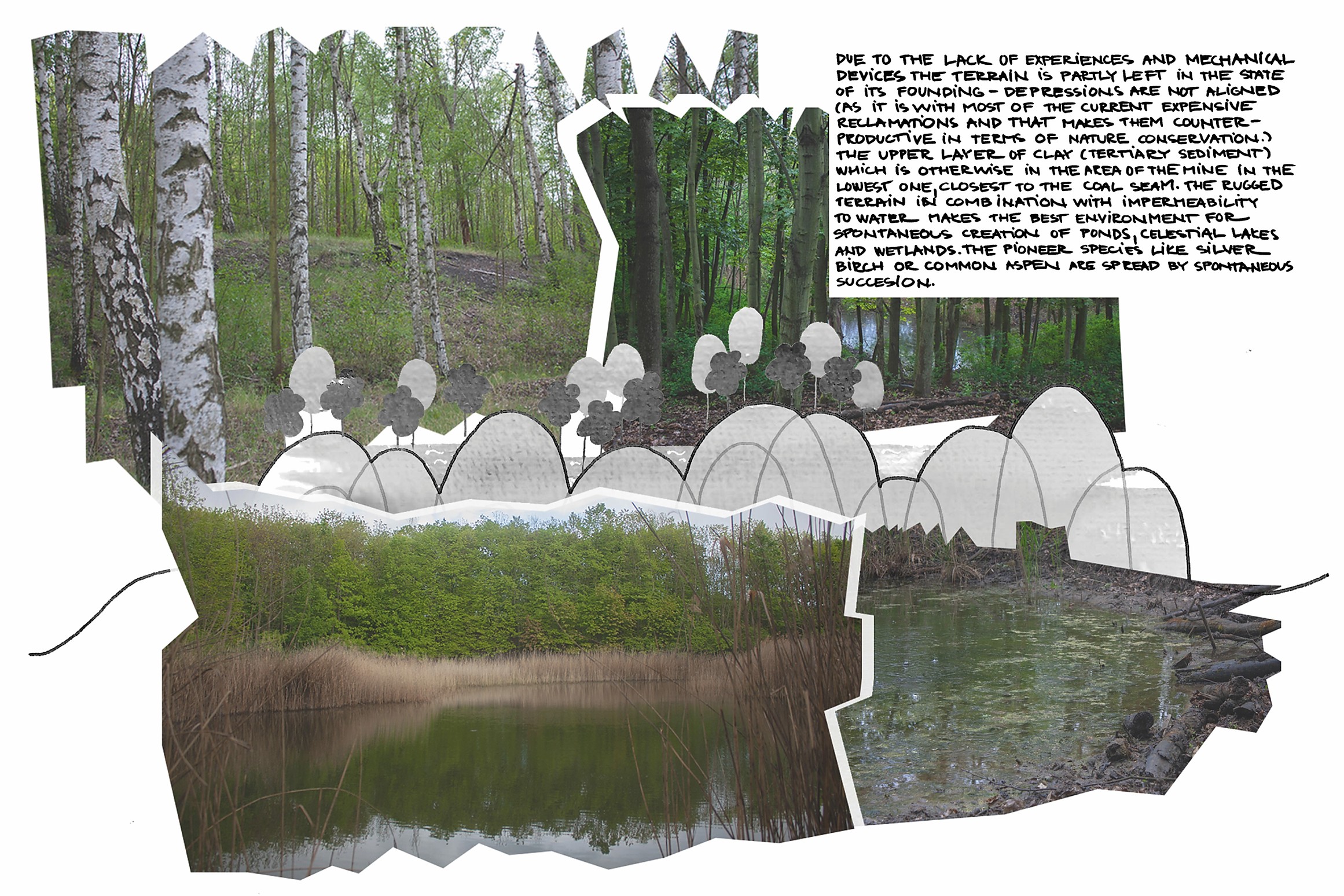Re-Valuing Nature: A Conversation Between Wastelands and Wetlands
research studio course, spring 2020
Urban Studies, Faculty of Architecture, Estonian Academy of Arts
The studio course explored the dialectics of urbanization and socio-ecological change through the lens of the question, how do we value nature? It focused on wastelands and wetlands as landscape categories that have been culturally significant since the 1970s, the decade when, as urban political ecologist Cindi Katz argues, “nature changed”. How, since then, has the value of nature been construed through the cultural practices of conservation, preservation and restoration? And by whom, for whom, and under what conditions has this valuing of nature occured?
Student projects compared how the term “wasteland” is understood in different cultures and languages; explored the interplay between wetland restoration programs and oil-shale industry in neoliberal Estonia; traced the socialist origins of revegetating spoil banks in Czechoslovakia; examined how John Locke’s labour theory of value, settler colonialism, and commodification of nature have intersected in Charleston, South Carolina; and addressed other political, institutional and technological complexities of revaluing nature.
Students: Zahaan Khan, Egemen Mercanlıoğlu, Anna Pederzini, Marina Puškar, Emilie Rážová, Lisa Rohrer, Ahmad Tahir, Deniz Taşkın
Tutors: Kaija-Luisa Kurik, Sean Tyler, Maroš Krivý
Visit the website.
(Thumbnail image: Lisa Rohrer)
research studio course, spring 2020
Urban Studies, Faculty of Architecture, Estonian Academy of Arts
The studio course explored the dialectics of urbanization and socio-ecological change through the lens of the question, how do we value nature? It focused on wastelands and wetlands as landscape categories that have been culturally significant since the 1970s, the decade when, as urban political ecologist Cindi Katz argues, “nature changed”. How, since then, has the value of nature been construed through the cultural practices of conservation, preservation and restoration? And by whom, for whom, and under what conditions has this valuing of nature occured?
Student projects compared how the term “wasteland” is understood in different cultures and languages; explored the interplay between wetland restoration programs and oil-shale industry in neoliberal Estonia; traced the socialist origins of revegetating spoil banks in Czechoslovakia; examined how John Locke’s labour theory of value, settler colonialism, and commodification of nature have intersected in Charleston, South Carolina; and addressed other political, institutional and technological complexities of revaluing nature.
Students: Zahaan Khan, Egemen Mercanlıoğlu, Anna Pederzini, Marina Puškar, Emilie Rážová, Lisa Rohrer, Ahmad Tahir, Deniz Taşkın
Tutors: Kaija-Luisa Kurik, Sean Tyler, Maroš Krivý
Visit the website.
(Thumbnail image: Lisa Rohrer)



